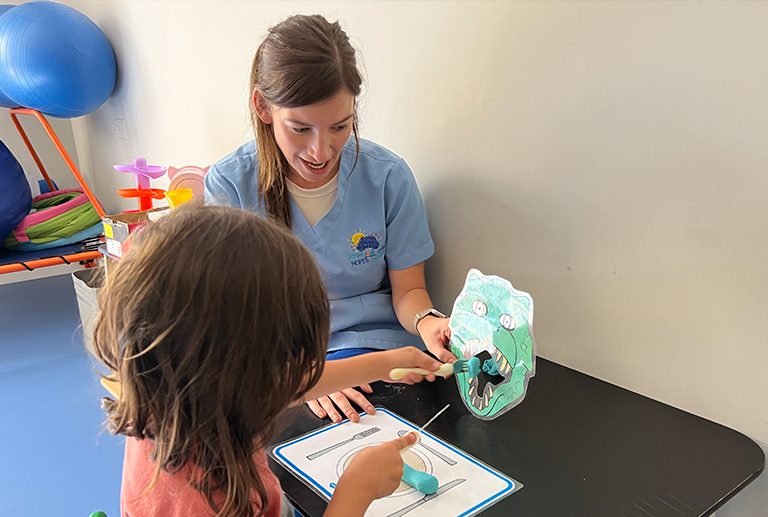How To Work With An Occupational Therapist For Infants

Occupational therapy can be a great resource for families with infants who may have developmental delays, disabilities, or other challenges. Through specialized techniques and activities, occupational therapists (OTs) help infants develop the skills they need to engage in daily activities and reach their full potential.
If you are considering working with an OT for your infant, here are some tips on how to make the most of it:
The role of the occupational therapist:
The best occupational therapist in Dubai specializes in helping children build the skills needed for daily activities. For infants, this may include aiding in the development of motor skills, sensory processing, and social interactions. The therapist will assess your child’s needs and create a personalized plan to support their development, helping to improve skills such as reaching, grasping, or sitting up.
Open communication is key:
Establishing clear and open communication with the therapist is essential. Share your concerns and observations about your infant’s behavior or development. Regular updates from both you and the therapist will ensure that the plan evolves in response to your child’s progress. This collaboration allows you to stay informed and involved in the therapy process, which can greatly impact your child’s success.
Set realistic goals and expectations:
Infants develop at their own pace, and occupational therapy should respect that. Work with the therapist to set achievable, realistic goals for your child’s development. Avoid comparing your infant’s progress with others; instead, focus on steady improvement and celebrate small milestones along the way. By setting appropriate expectations, you’ll create a positive, encouraging environment for your child.
Integrate therapy into daily life:
To increase the benefits of occupational therapy, try to incorporate exercises or activities recommended by the therapist into your daily routine. These activities can be playful and engaging for your infant, such as tummy time, playing with textured toys, or practising reaching for objects. Consistency at home improves the progress made during therapy sessions and encourages the child’s development.
Be patient and supportive:
Patience is essential when working with infants. Development is a gradual process, and some milestones may take time. Support your infant with encouragement and celebrate each achievement, no matter how small. With your support and guidance, the occupational therapist can help ensure your child’s developmental progress continues at a healthy pace.
 How To Choose The Right Polyalkylene Glycol (PAG) Lubricants
How To Choose The Right Polyalkylene Glycol (PAG) Lubricants  6 Essential Tools For Your Kitchen Renovation Project
6 Essential Tools For Your Kitchen Renovation Project  The Most Common Audio Visual Rental Mistakes And How To Fix Them
The Most Common Audio Visual Rental Mistakes And How To Fix Them  The Role Of Kitchen Companies In Renovation Projects
The Role Of Kitchen Companies In Renovation Projects  Maternity Shoot Must-Haves – Items To Bring
Maternity Shoot Must-Haves – Items To Bring  5 Creative Brunch Themes to Impress Guests
5 Creative Brunch Themes to Impress Guests